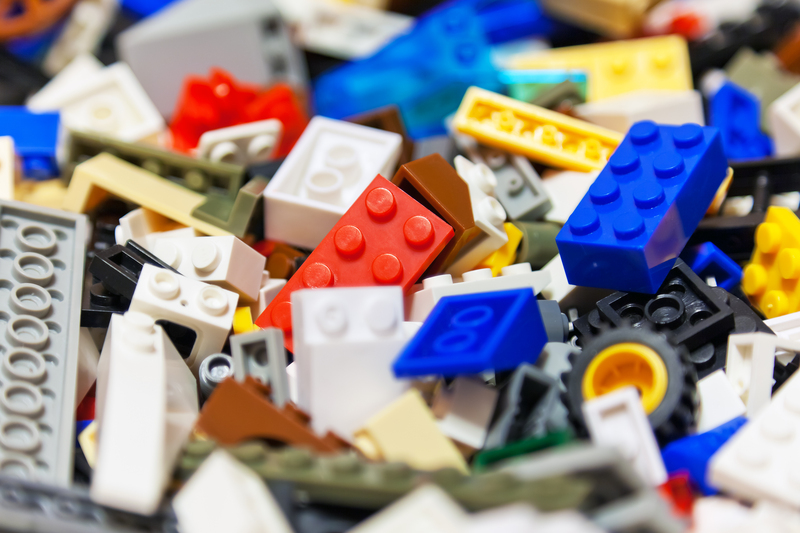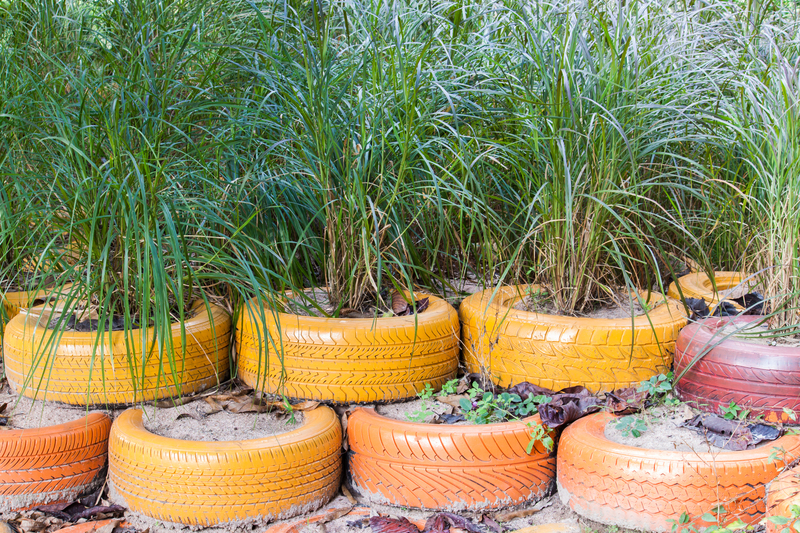Creative Techniques for Reducing Household Waste
Household waste has become a significant concern in our ever-evolving world. With growing populations and increased consumption, our homes often become the starting point for tons of trash that end up in landfills yearly. However, you can take innovative steps right at home to minimize your ecological footprint. This comprehensive guide covers numerous creative techniques for reducing household waste, turning daily routines into meaningful eco-friendly habits.
Why Reducing Household Waste Matters
Every piece of waste produced at home eventually impacts the planet. Landfill overflows, greenhouse gas emissions, and pollution all trace back to our daily waste habits. Reducing household waste leads to:
- Lower carbon emissions
- Conservation of natural resources
- Cleaner communities
- Financial savings
- Supporting a sustainable future
Eco-friendly households can also inspire neighborhoods and communities to take collective action, further amplifying the positive effects.

Rethinking the Way You Shop
1. Embrace Bulk Buying and Package-Free Stores
One of the primary sources of domestic waste is product packaging. By shopping at bulk stores or choosing package-free items, you significantly cut down on single-use plastics, cardboard, and wrappers. Here's how to make the shift:
- Bring your own reusable containers for shopping grains, spices, and snacks.
- Choose local stores or farmer's markets that support zero waste shopping.
- Prioritize items with the least packaging or sustainable wrapping, like paper or compostable materials.
2. Plan Meals and Avoid Overbuying
Food waste makes up a huge part of household garbage. Combat this by:
- Creating weekly meal plans to purchase only what you'll consume.
- Shopping with a list to prevent impulse buying.
- Using leftovers creatively in soups, stews, or casseroles.
Meal planning not only reduces waste but also helps you save money and eat healthier.
3. Prefer Quality Over Quantity
Invest in higher-quality, durable goods rather than frequently replacing cheaper items. This reduces long-term waste production and often saves you money over time. Focus on products with lifetime warranties and repair services.
Creative Recycling and Upcycling
4. Upcycle Everyday Items into Something New
Think beyond the blue recycling bin! Upcycling involves transforming old items into useful or beautiful products:
- Glass jars become storage containers, flower vases, or candle holders.
- Old clothes can be turned into cleaning rags, cushion covers, or even quilts.
- Wood pallets may be crafted into event decorations, furniture, or garden beds.
With a little creativity, almost any household item destined for the trash can find a second life.
5. Get Creative with Composting
Composting is an effective way to minimize kitchen waste and create nutrient-rich soil for your plants:
- Start a backyard compost bin for fruit, veggie scraps, coffee grounds, and eggshells.
- A worm bin (vermicomposting) fits even in small apartments. Worms break down food waste efficiently.
- Use compost in your garden, planters, or donate to local community gardens.
Reducing food scrap waste not only helps divert tons from landfills but also nourishes your garden naturally.
6. Repurpose Items in Unique Ways
Challenge yourself to see potential in everything you'd normally toss. Here are some creative ideas for reducing household waste through repurposing:
- Coffee tins become handy tool holders or kid's pencil cases.
- Plastic bottles can transform into watering cans or bird feeders.
- Broken ceramics can be used in mosaic art or as drainage layers in plant pots.
Smart Strategies to Reduce Disposable Usage
7. Say No to Single-Use Products
Single-use items make up a huge percentage of home trash. Consider these strategies:
- Switch to reusable shopping bags for groceries and errands.
- Replace paper towels with washable, absorbent cloths.
- Use glass, metal, or bamboo straws instead of plastic versions.
- Bring your own cup to coffee shops.
Every time you refuse a disposable item, you're making a small but powerful impact in the effort to curb domestic waste.
8. DIY Cleaning Supplies and Toiletries
Cut back on wasteful packaging by making your own cleaning agents and personal care items:
- Mix baking soda and vinegar for effective, natural cleaners.
- DIY toothpaste and deodorant recipes are easy to concoct and store in reusable containers.
- Reusable sponges, cloth wipes, and homemade laundry detergent reduce single-use purchases significantly.
Organizing Your Home for Waste Reduction
9. Create a Home Recycling Center
Keep recycling convenient and fun by designing an attractive, organized recycling area:
- Label bins clearly for plastics, cardboard, metal, and glass.
- Involve your kids by letting them decorate the bins or track how much you recycle every week.
- Research your local recycling rules to ensure you're sorting correctly.
Well-organized recycling spaces make sustainable habits easy and accessible for everyone in the family.
10. Host a Community Swap Event
Before tossing out clothes, books, or home goods, organize a neighborhood swap. Community swaps allow people to exchange usable items, giving them a new home and reducing landfilled waste.
- Invite friends and family to bring gently used items for trade.
- Donate unclaimed goods to nearby shelters or charities.
- Use online community boards like Facebook Marketplace or Freecycle for virtual swaps.
Embracing a Mindful Lifestyle
11. Minimalism and Conscious Consumption
Reducing household waste is tightly linked to living simply:
- Evaluate your purchases. Do you really need it?
- Borrow or rent items you will use rarely like power tools, party supplies, or books.
- Digitalize where possible: switch to e-books, online banking, and digital subscription services to cut paper waste.
Practicing minimalism not only decreases household clutter, but also fosters long-term savings and a more peaceful home environment.
12. Educate and Inspire Others
Waste reduction starts at home but spreads through education. By sharing your journey with family, friends, or on social media, you can motivate others to adopt similar eco-friendly practices. Organize workshops, create informative posts, and celebrate small wins to build momentum for broader impact.
Innovative Technologies in Waste Reduction
13. Use Smart Gadgets and Apps
Modern technology can make household waste management smarter and more efficient:
- Smart composters that monitor moisture and temperature for perfect decomposition.
- Apps that track your food inventory, remind you before things expire, or suggest recipes based on what you have on hand.
- Barcode-scanning recycling apps to educate you on proper sorting.
14. Eco-Friendly Appliances
Upgrade to energy- and water-efficient appliances as older appliances break down. These not only reduce waste by lasting longer, but also minimize consumption of natural resources in your home's daily operation.
Creative Waste Solutions for Every Room
15. Kitchen
- Install a compost bin or pail for easy veggie scrap disposal.
- Repurpose leftovers into new meals or store in reusable containers.
- Buy in bulk, and freeze or dry foods before they spoil.
16. Bathroom
- Switch to bar soaps and shampoo bars with minimal packaging.
- Use refill stations for liquid soap, detergent, and more.
- Opt for bamboo toothbrushes and washable makeup pads.
17. Living and Bedroom Spaces
- Donate or sell old furniture and electronics.
- Repurpose t-shirts into cleaning rags or pet bedding.
- Decorate with upcycled crafts from jars, cans, and wood scraps.
Measuring and Tracking Your Progress
18. Conduct a Waste Audit
Take a week to analyze what your household throws away. Categorize your trash and recycling to see where waste reduction is possible. Set goals based on your findings and revisit them monthly to assess improvements.
19. Celebrate Milestones
Reward your family for every step toward ecological household waste reduction--maybe a picnic in the park or a night out. Positive reinforcement helps to make green habits stick!
Conclusion: Every Small Effort Counts
Adopting creative techniques for reducing household waste is not just a personal responsibility--it's a contribution to a healthier, cleaner planet for all. By combining mindfulness, innovative practices, and a community spirit, you can transform your home into a beacon of sustainability. Start today with small changes; over time, the impact will grow. Let your household be a model of creative, thoughtful waste reduction for friends, family, and future generations.

Frequently Asked Questions (FAQ) on Reducing Household Waste
What is the most effective way to reduce household waste?
The most effective method is to reduce consumption and prioritize reusing or repurposing items whenever possible. Buying less, buying better, and rethinking your habits make the most difference.
How can parents encourage kids to participate in waste reduction?
Educate children early about the importance of recycling, composting, and reusing. Create fun waste-sorting games or involve them in upcycling projects to spark their creativity and interest.
How do I get my community involved?
Start by sharing your progress and tips with neighbors, organizing swaps, or hosting workshops about creative waste management. Engaging local groups amplifies the positive effects of individual actions.
Start Your Waste-Reduction Journey Today
By implementing creative household waste reduction strategies, you lay the foundation for a brighter, greener tomorrow. Remember, every step counts and inspires positive change throughout your community and beyond.